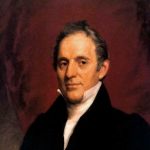Introduction
In his own lifetime, “pioneer missionary,” Thomas Lewis Johnson, earned the respect and admiration of nearly all who knew him.3 During the course of his life, Johnson became each of the following: a firsthand witness to the hardships of slavery in Virginia; a pastor of churches spanning from Denver to Chicago; a student of C. H. Spurgeon (1834–1892) at his Pastor’s College; a missionary to the Cameroons of Africa; an itinerant evangelist; a supporter of the anti-slavery movement; and a tireless spokesman for African missions. While he did not seek fame and popularity for their own ends, Johnson’s appearance as a black man in a predominantly white British context, along with his compelling life’s story, helped him become an admired subject of public curiosity. Despite Johnson’s many accomplishments, Johnson remains largely unknown in the present day. This is a perplexing and impoverishing loss, for his life and varied contacts and interests put him in a strategic role at a formative period of cultural and denominational history. Hopefully this historical gap can be traversed with some fitting attention to Johnson. The purpose of this article is to explore Johnson’s relation with C. H. Spurgeon and point to some of the areas of influence that the great Victorian Baptist preacher had on this former slave from the southern United States.
After a broad summary of Johnson’s early life and ministry in order to supply the context for Spurgeon’s place in the storyline, Johnson’s time at the Pastor’s College will be investigated to demonstrate how Spurgeon personally, and through the college faculty, had a molding influence on Johnson. This will be illustrated in specific cases of evangelism, preaching, piety, and missionary activity. This section will compare selections of Spurgeon’s literary works with some evangelistic portions of Johnson’s autobiography. Johnson’s own testimony concerning the ways that Spurgeon influenced him will objectify what is apparent in the different subjects discussed. A fourth section will be devoted to Johnson’s relationship with Spurgeon.
Summary of the Johnson’s Early Life and Ministry
According to his own autobiographical account, Thomas Lewis Johnson was born into slavery in Virginia on August 7, 1836.4 Johnson’s maternal grandfather had been captured out of Africa into slavery, and both his grandmother died when Johnson’s mother, “was quite young.”5 Her surviving brothers and sisters were, “sold when she was thirteen years old,” further splitting the family up. Johnson’s father, whom he describes as an “octaroon,” meaning he was “one-eighth negro blood,” was a “free man,” and attempted, without success, to buy Johnson and his mother out of slavery.6 He died when Johnson was nine. Though, according to Johnson, “He left money for me to purchase my freedom when I became a man,” the money, “got into other people’s hand,” and never found its way into Johnson’s possession.7 Johnson recalls seeing many of his young slave friends taken from their families and sold away to new owners.8
Johnson’s conversion came through an evangelistic encounter with, “a coloured man in the street, named Stephney Brown.”9 Brown proclaimed to Johnson, “the simple gospel,” telling him, “go to God, and say: ‘Lord, have mercy upon me, a hell-deserving sinner, for Jesus’ sake.’”10 Johnson heeded Brown’s admonition later that evening, recounting that “I went into the dining room, fell down upon my knees, and said: ‘O Lord have mercy upon me, a hell-deserving sinner, for Jesus’ sake.’ Then I became very happy.”11
When the first shots of the American Civil War were fired in 1861 in Ft. Sumter, SC, Johnson was laboring as a slave in Virginia. Johnson quickly found himself close to the center of the military turmoil. His master’s oldest son enlisted in the Confederate Army, and Johnson was selected to accompany him as a cook and assistant.12 During the war Johnson met his future wife, Henrietta Thompson, who was “maid to Mrs. Cooper, wife of General S. G. Cooper, Inspecting General of the Confederate Army, and sister of the great General [Robert E.] Lee.”13 They were married “in the midst of the warring days,” in 1863.14
After the war, Johnson travelled to New York where he hoped to start a new life free from the prejudices and challenges he faced as a slave in Virginia. He eventually found work there as waiter, but to his disappointment, he recalls, “I soon found there was as much prejudice against my race in New York as there was in the South.”15 Discouraged by unexpected hostility towards blacks he experienced in New York, Johnson moved to Chicago in September of 1866, where he eventually connected with Rev. Richard DeBaptiste (1831–1909), pastor of Olivet Baptist Church, where Johnson and his wife became members.16 In Chicago, Johnson supported himself by managing the “downstairs pantry,” of a local restaurant17 and working other “odd jobs.”18
Johnson and his wife had been living in Chicago for nearly three years when DeBaptiste, who had become a spiritual mentor for him, presented Johnson with a potential opportunity to pastor a small church in Denver, Colorado. One natural stipulation for the arrangement, however, was that Johnson, who was still only a layman, would have to be ordained. On April 15, 1869, a council of ministers in Chicago examined Johnson and ordained him after judging him to be fit to enter pastoral ministry.19 After some initial reluctance, Johnson decided to accept the call to the pastorate in Denver.20
Johnson’s pastorate in Denver was a formative experience accompanied by many of the natural challenges that often face inexperienced pastors. Despite the enjoyment he and his wife experienced there, he never could fully escape his missionary calling to Africa. His mind was often preoccupied with thoughts like “one day I must go to Africa, the land of my fathers, to preach the Gospel to my long-benighted people.”21 After three years in Denver, Johnson and his wife returned to Chicago where he hoped to receive training eventually to go to the mission field. On the recommendation of DeBaptiste, Johnson moved from Chicago to Springfield, IL where he spent “nearly a year,” preaching in an “old Theatre.” During this time, he came into contact with a English man named E. Stroud Smith, who “belonged to England, but had been in America for many years.”22 Smith and his family befriended Johnson, began attending his Sunday school, and “kindly offered their services,” which the Johnsons, “gladly accepted.”23 The Smiths, however, soon left Chicago to return England.
About that time, Johnson’s burden for Africa continued to grow heavy. Though he had apprehensions about the challenges and dangers of missionary life, he recalls that he “could not lose sight of Africa,” and that “there was something which kept Africa continually before me with its great need of the Gospel.”24 Johnson’s burning desire to bring the gospel to Africa moved him to seek out avenues for reaching the continent of his ancestors. Johnson sought out information about going to Africa with the support of the American Baptist Missionary Union, but to his disappointment, he discovered that “it had no stations in Africa.”25 He was equally disheartened by that fact that “there was no missionary organization among the coloured people for sending their own people to the land of their fathers.”26 Finally, in February of 1876, Johnson received a word of hope from England by way of his friend Stroud Smith. He had a contact in Manchester, William Hind Smith, who was willing to take the Johnsons into his home so that Johnson would be afforded “a course of study before going to Africa.”27 Johnson accepted the invitation, and on August 19, 1876, he and his wife left their home in Illinois and sailed for England.28
Johnson as a Student at the Pastor’s College
When the Johnsons arrived in Manchester, Hind Smith, true to his word, welcomed them into his home and made inquiries about places of opportunity for Johnson to study. He eventually contacted C. H. Spurgeon, famed pastor of the Metropolitan Tabernacle in London, to see if Johnson could be admitted as a student to his Pastor’s College. Spurgeon replied to Hind Smith’s enquiry in the form of a post card. It simply read, “Dear Mr. Hind Smith,—Yes, let the dear man come—C. H. Spurgeon.”29 To be sure, Johnson’s unusual background and humble beginnings did nothing to hurt his chances for being admitted to the Pastor’s College. Tom Nettles points out that “Spurgeon never rejected a student on account of meagerness in education or culture as long as he was convinced that the student’s call was from God and his zeal deeply ingrained.”30
Johnson first reported to the Pastor’s College on December 3, 1876.31 Peter Morden rightly recognizes the vast influence of the college he was entering. He remarks that Johnson’s acceptance to the school—not only as “one of the first black men to study at Spurgeon’s,” but also as a former slave from the American South—truly validates, “the global reach of the college.”32 Similarly, the uniqueness of Johnson’s presence at the school should not be overlooked as a testimony to his own significance as a student.
Johnson encountered some challenges during his earliest days at the college. He recounts how, “a short time in college,” made him conscious that “I had not been fully aware of my own ignorance,” and how, “each day there were subjects, questions, and words of which I knew nothing.”33 Providentially, Johnson was soon able to “thank God” that “every student was a friend and a brother” to him.34 He also received considerable help through the “kindness and patience of the Professors,” who, “with all my darkness,” patiently worked to assist him.35 Johnson especially received care and attention from “Professor Fergusson,” who “took such pains to instruct,” him, even welcoming him into his home where, “His dear wife and daughters all took a deep interest,” in Johnson’s welfare.36 He even received encouragement from Spurgeon, who promised Johnson that “if other channels,” of support for Johnson’s aspirations to reach Africa with the gospel, “failed,” he could confidently, “depend on him to do his part.”37
“Look at him, brethren, I see in him an ‘Andrew Fuller!’”
The account that Johnson gives of his first attempt at preaching in the college, illustrates the extent to which he was admired in the eyes of the faculty, while similarly demonstrating the mercy that he and others like him were shown by the school’s professors. Before Johnson had traveled from America to Britain, he was given a gift which had served countless Baptist ministers on both sides of the Atlantic before him, including Spurgeon: a three-volume set of the works of leading eighteenth century Baptist theologian, Andrew Fuller (1754–1815). Johnson recounts of the time he invested studying those three tomes of Fuller, “I read these works diligently.”38
When the time came for Johnson to prepare and deliver a sermon before his classmates, he “made use of some expressions,” from Fuller to communicate a point, of which he reasoned, “I could not say the thing better myself.”39 Johnson felt some level of comfort using Fuller, because, he suspected, “I thought that the book, being old, no-one would detect it; the students would be sure to be taken up with the new books.”40 Unbeknownst to Johnson, one individual in the classroom did “detect” the less than honorable method he used during his sermon preparation— the instructor of the course, “the ever vigilant Professor Rogers.”41 Rather than publicly exposing Johnson for his sin—and more devastatingly, forcing him to face the College’s penalty for plagiarism—Rogers extended grace to Johnson. When Johnson finished delivering his sermon, Rogers let the American know he had been found out without making the discovery of his crime public knowledge to the rest of the class: “If Mr. Johnson, who is forty years old, and having no advantages, can study the English Grammar—(Hear, Hear)—it shows what he is capable of. Look at him, brethren, I see in him an ‘Andrew Fuller!’”42 While his fellow students applauded the professor’s commendation of his sermon, Johnson, overcome with guilt for his sin—and no doubt, embarrassed at having his offense uncovered by a teacher he greatly respected—recalls, “I sat looking into the fire in the grate and studied ‘fireology’ for the remainder of the sermon class. My sin found me out.”43 The episode, humiliating as it was, became a spur towards Johnson’s sanctification: Like so many other experiences during his time at the Pastor’s College, it allowed him later to say, “This was indeed a great help to me.”44
The Influence of Spurgeon’s College on Johnson
An individual studying Johnson for the first time who only consults the work of the handful of scholars, who write about him, might conclude that Johnson’s time at the Pastor’s College is of, at best, marginal importance. This oversight can be easily avoided if one simply takes seriously Johnson’s statements about his time at the college: “I regard my connection with the Pastors’ College as the turning point in an important passage of my life’s history, for which I feel continually grateful.”45 Johnson suggests of the connection between his victories on the mission field and his studies at the school, “I am sure that I never could have so well succeeded in the African Mission, or in Evangelistic work at home, had it not been for the training and fraternal helpfulness of the Pastors’ College, with its many advantages, and I shall remember in all my work how that I gathered strength and wisdom from the faithful tuition so kindly given me; and it has been my endeavour to show that this kindness has not been vainly bestowed.”46 Readers of these words who value Johnson’s opinion of what he thinks influenced him, should find it difficult to overlook his school days at the college. One might convincingly argue from these words, that Spurgeon’s greatest influence on Johnson came through the College.
Johnson’s Relationship with Spurgeon: “Thank God He is My Friend”
Like the vast majority of students at the Pastor’s College, Johnson never enjoyed being in the company of Spurgeon’s intimate inner circle of friends and confidants (nor does he ever suggest he felt entitled to such a rare privilege). It would be incorrect, however, to conclude that because Johnson was not one of Spurgeon’s closest of friends, that the famous preacher did not consider the former slave a friend at all. In fact, Spurgeon warmly referred to his American student as “My black friend, Mr. Johnson.”47 Admittedly, the amount of time Spurgeon and Johnson spent alone in each other’s company—like the majority of students at the college—was, in all likelihood, minimal. Even so, it remains beyond question that Johnson cherished every moment with Spurgeon whenever opportunities for fellowship with the pastor were presented to him. Interestingly, Johnson’s first attempt to meet Spurgeon ended in unexpected disappointment. While Johnson was still staying with William Hind Smith in Manchester, he travelled to London in response to an invitation to meet with the secretary of the Baptist Missionary Society, Rev. C. Bailhache. After his meeting with Bailhache, however, Johnson decided to take a detour from his returning journey back to Manchester. He took a “bus” to Spurgeon’s estate in hopes to meet the pastor he so greatly admired. When he arrived at Spurgeon’s home, however, it was late in the evening, and he laments how he discovered that the great preacher “was not at home,” and how he “thought nothing of the distance when going but it was weary and alarming work returning.”48 Upon leaving Spurgeon’s estate, Johnson suddenly became aware that it had become “quite dark” outside, which caused him concern, being his, “first night in London.”49 Despite his troubling realization, Johnson was able to return to Manchester safely. The disappointment of missing Spurgeon on this occasion, however, did not sour the sweetness of the moment when Johnson finally did meet the acclaimed preacher:
I was not in College very long before I met Mr. Spurgeon. I had been very anxious to speak to him. His first words set me at ease, but his sympathetic kindness was beyond my highest hope. He took me by the hand, asked me a few questions, and wished me success. The fear all vanished, and I felt I had been talking to a dear loving friend. I at once fell in love with dear Mr. Spurgeon. I know not how to express my feelings about this first meeting, and can only say that I felt so happy in his presence, and so at home with him, that I could not help saying, “Well, thank God he is my friend.”50
Johnson goes on to marvel at Spurgeon’s ability to make almost anyone he came in contact feel welcome, “It was so like Mr. Spurgeon to make everyone happy with whom he came in contact, be they ‘home born or a stranger within the gates.’”51 Johnson’s initial encounter with Spurgeon, as well his continuing relationship with him, greatly impressed and encouraged Johnson. Similarly, Spurgeon’s authenticity and approachability outside of the pulpit gave Johnson a greater respect for what the preacher proclaimed while in it:
I believe it often happens that one reads a sermon or an address, or a book, and there comes a desire to meet the author. But in some cases after meeting the author the sermons and books are not so highly prized, for there is such a difference between the author and the production. It was otherwise in the case of Mr. Spurgeon, for had you met him anywhere or under any circumstances, in the street, in his home, in his study, or in the vestry of the Metropolitan Tabernacle, you would have recognized the agreement between the man and his works.52
It is not unlikely that Johnson’s own personal history as a slave in the American South may have endeared him to Spurgeon’s heart. Spurgeon’s hatred of slavery was not a secret to the public. Concerning Spurgeon’s opinion of the relationship between slavery and the American Civil War, Nettles observes that though Spurgeon, “considered America a glorious country in many ways,” his disgust for the institution of slavery saw him write without blushing of how it would be better that “North and South should be rent asunder and the States of the Union shivered into a thousand fragments, than that slavery should be suffered to continue.”53 One can imagine how it may have warmed Spurgeon’s heart to think of Johnson, a firsthand witness to the institution for which the Victorian preacher held so much contempt, receiving quality ministerial training from his Pastor’s College.
These encounters Johnson shared with Spurgeon only deepened his admiration for the preacher. More importantly, they demonstrate one of the ways in which Spurgeon helped to sustain Johnson’s call to take the gospel to Africa. By Johnson’s own admission, Spurgeon’s promise that he could “depend on him to do his part,” was a welcome comfort that freed him to focus upon the task of fulfilling his calling, rather than worrying about how he it would be supported.
Spurgeon’s Influence on Johnson’s Piety, Preaching, Evangelism, and Missionary Activity
One of the areas where Spurgeon’s influence on Johnson becomes especially visible is in his evangelism. This is true of Johnson’s autobiography, where in the middle of his own life’s narrative, he occasionally breaks out into spontaneous evangelistic exhortations to his readers. Johnson is an interesting author, but a less than prolific writer, which makes his autobiography’s success appear all the more impressive. The prose of Johnson’s book, which Michael Haykin calls, not unfairly, “a bit higgledy-piggledy in places,” occasionally wanders off into random peripheral details that are not strongly connected to the central storyline.54 This is likely one of the reasons scholars like Jeffery Green describe Twenty-Eight Years a Slave as “a somewhat rambling autobiography.”55 While Johnson’s style may come across as rambling, in at least some of these instances, there is purposefulness behind his seemingly sporadic digressions.
One these evangelistic excurses in Twenty-Eight Years a Slave, occurs after Johnson describes his own conversion. He begins by asking his reader, “Dear Reader, have you stolen away to Jesus? Has He liberated you from spiritual bondage?”56 Johnson continues, putting before his reader variety of evangelistic texts, declaring,
His promise and encouragement are found in the words, “Whosoever shall call upon the name of the Lord shall be saved.”—Rom. x. 13. Have you ever called in faith? See verse 10. If you have not, then God help you, as you look upon these words, to say, ‘I will, God helping me.” Let every worldly engagement wait, and every secret plan go, and take God at His word. Doubt not our blessed Lord for a moment when He says, “Come unto Me, all ye that labour and are heavy-laden, and I will give you rest.”—Matthew xi. 28. “Him that cometh to Me I will in no wise cast out.”—John vi. 37. Stop and think of what the Lord has done for you.57
Not only does Johnson exhort his potential unconverted readers to trust in Jesus, but in other places, he also entreats his Christian readers to consider supporting the cause of taking the gospel to his beloved Africa. In one such section where Johnson is explaining the struggles of his earliest attempts to teach himself how to read, he again drifts away in one of these excurses. He quickly moves from the description of his first efforts at trying to read, to the topic of slavery, and then writes, “When, thirty-eight years afterwards, I went to Africa, I found that on comparison the condition of the plantation negroes in America was but little better than that of the heathen in Africa. But ‘How shall they hear without a preacher?’ Rom. x., 14.”58 He continues with a plea for his reader, “Dear Christian reader, will you not do something to send the Gospel to Africa— poor, long neglected Africa, the land of my fathers?”59 These types of evangelistic appeals do not fill every page of Johnson’s autobiography, but there are enough of them to draw the reader’s attention away from his broader story when they appear.
For some, these sections in Johnson’s autobiography may come across as annoying interruptions in his narrative. However, those who are familiar with Spurgeon should be less surprised by this detour on the part of his pupil. In his book All of Grace, Spurgeon offers more than a few evangelistic exhortations that appear eerily similar to Johnson’s. In one place, he entreats, “Oh dear reader, receive the Lord Jesus into your soul, and you shall live forever! ‘He that believeth in Him hath everlasting life.’”60 Similarly, in his book Around the Wicket Gate, he writes, “Dear reader, will you have Christ now? Jesus invites all those who labor and are heavy laden to come to Him, and He will give them rest.”61 These types of exhortations are typical of many of Spurgeon’s writings, and are patently characteristic of his evangelistic works. As such, it is not surprising that Spurgeon’s evangelistic fingerprints appear on the literary handiwork of his adoring student.
Spurgeon’s Impact on Johnson as Missionary
Like Johnson, Spurgeon himself possessed deeply held convictions concerning the task of global missions. He hoped that many students from his Pastor’s College would prayerfully consider foreign missions as a lifelong calling. Spurgeon’s hope for producing future missionaries from within the college’s student body is displayed clearly in his book, Lectures to My Students. He observes that while “Our existing pulpits [at home] are tolerably well supplied,” with preachers, “Hundreds of millions have seen a missionary only once in their lives, and know nothing of our King. Shall we let them perish? Can we go to our beds and sleep while China, India, Japan and other nations are being damned? Are we clear of their blood?”62 He goes on to insist that a man called by God should only pursue other avenues of ministry after first considering missions: “We ought to put it on this footing—not ‘Can I prove that I ought to go?’ but ‘Can I prove that I ought not to go?’ When a man can prove honestly that he ought not to go, then he is clear, but not else.”63 Though Spurgeon played an important role in Johnson’s missionary success, Johnson’s passion for missions, particularly for Africa, was something he already carried with him when he first arrived at the Pastor’s College. Nevertheless, Spurgeon’s own commitment to missions can have only cultivated Johnson’s already burning desire to bring the gospel to Africa.
Some of the greatest impacts Spurgeon made on Johnson’s missionary endeavors came from the encouragement and support he showed him. The following account shows well the type of encouragement Johnson received from Spurgeon during his time at the college:
In the first week of January, 1877, I had Mr. Spurgeon to myself for quite half an hour, when I laid before him my history in brief, telling him of my journey to England through providential arrangement; of my health, which at that time alarmed my friends in London, and of my desire to go to Africa, and of the unfavourable outlook. He told me to make myself perfectly happy, for if other channels failed I could depend on him to do his part. I returned from that visit with thankfulness to God in my heart, and with gratitude for that honoured servant of His who was so kind to me.64
For Johnson, who came with his wife to England all but empty-handed and with few personal contacts, the assurance from Spurgeon that he would, “do his part,” to help an American, was surely an incredible relief. After all, Johnson’s burning desire to bring the gospel to Africa would mean little if he possessed no financial resources or prospects to take him there. Before Johnson, along with his wife and the Richardson’s, left to pursue their missions work in Africa, the members of the Metropolitan Tabernacle held a farewell gathering for them. The account of the event was published in the November 1878 issue of The Sword and the Trowel and informs the readers, “MESSRS. JOHNSON AND RICHARDSON, AND THEIR WIVES…WILL VERY SOON BE ON THEIR WAY TO AFRICA TO PREACH THE EVERLASTING GOSPEL AMONG THOSE OF THEIR OWN RACE.”65 It then goes on to record a flattering commendation of the Johnsons, lauding that “During their stay with us they have endeared themselves to us all, and have won a very high place in our esteem by their genuine piety, their unaffected simplicity, and their sincere desire to qualify themselves for their great work.”[66 It continues, praising the Johnson’s as exemplary Americans: “We never remember having met with any of their countrymen in whom we had such unbounding confidence as in these good men.” The publication closed by saying that “though they go forth from us to a distant land they will always abide in our kindest memories. May the Baptist Missionary Society find in them able heralds of the cross, and may Ethiopia soon stretch forth her hands unto God.”67 He closes his comments, by remarking that while the prospect of future missionaries going to lands like Africa is encouraging, the “Christian Church, must TAKE CARE TO PROVIDE THE MEANS FOR THEIR SUSTENANCE.”68
Johnson’s and Richardsons set sail for Africa, they visited Spurgeon and his wife, Susannah in their home, where all three families enjoyed a heartwarming time of fellowship, before exchanging tearful goodbyes. Susannah, records the account in her book, Ten Years of My Life in Service of the Book Fund: “A very pleasant and memorable time we spent together, their Pastor encouraging them in the work to which they ha devoted their lives, and their love and sympathy overflowing to him and to me (then very sick in return).”69 During the visit, Susannah writes, “at the request of my dear husband, they sang to me some the strange sweet songs of their captivity, and all who heard these plaintive melodies sung in the Tabernacle at their farewell meetings will agree with me that sweeter, yet sadder melodies could scarcely be imagined.”70 When the singing ended and the time of fellowship drew to a close, she recalls that “not a dry eye was in the little company.”71 For Johnson, who included Susannah Spurgeon’s retelling of the even in his own autobiography, this special farewell with the Spurgeon’s was an additional encouragement.72
Spurgeon’s encouragement to Johnson while he was still only an aspiring missionary was, without question, important to his success he later enjoyed in Cameroon. His influence on Johnson, however, did not subside during his former student’s time on the mission field. Johnson continued to correspond with Spurgeon during his time in Africa. A section of the August 1879 issue of the Sword and the Trowel, entitled “Messrs. Johnson and Richardson in Africa,” records that “we have received news from our couloured friends.” After a detailed report of Johnson’s earliest work at “their new station, Bakundu, Victoria, Cameroons,” it goes on to press its readers to support the Johnsons, saying, “If any friends wish to help them they need not send money, as that is of no use where they are, but they require clothes for the naked population, cloth, prints, buttons, cottons, thread, medicines, etc., for barter and use, and books, slates, pencils, etc., for their school of one hundred and six boys.”73
In March of 1879, tragedy struck the Johnson when his beloved wife, Henrietta, “fell victim to a fever,” from which she never recovered. When word reached Spurgeon that Henrietta had passed away, he published the sobering news in the Sword in Trowel, lamenting, “our beloved friend, Mr. Johnson, sends us a very touching account of the illness and death of his dear wife.”74 Spurgeon included the news, hoping to invoke, “the heartiest sympathy and prayers,” of the Members of the Metropolitan Tabernacle who, “made their acquaintance,” of the Johnson during their time in London.75 To be sure, this type of support from Spurgeon had a profound influence on Johnson’s emotional survival during the tragedy.
Spurgeon’s Influence on Johnson’s Preaching
Spurgeon’s influence on the evangelistic spirit of Johnson’s preaching appears with the same clarity and force that it does in his writing. Daniel H. Peterson agrees with the historical consensus on Johnson, the preacher, describing him as “a moving speaker in the simple, heartfelt manner of his mentor Charles Haddon Spurgeon (1834–1892).”76 Spurgeon’s passionate evangelistic preaching is revered by his strongest admirers and even conceded by some of his harshest critics. A selection from Spurgeon’s Sermon, “Compel them to Come In,” which Iain Murray suggests is, “possibly more used in the conversion of people than other which he preached,”77 forcefully illustrates the zeal and concern for the lost that comes out in his preaching: “I exhort you to flee to Christ. O my brother, dost thou know what I know of him… I thought that Christ was cruel and unkind. O I can never forgive myself that I should thought so ill of him… I should be worse than a fiend if I did not now, with all the love and kindness and earnestness, beseech you to ‘lay hold on eternal life.’”78
While it will be admitted that Johnson’s preaching did not match Spurgeon’s eloquence it never lacked the London preacher’s passion for the souls. The reports from newspapers, journals, and personal accounts concerning the speaking engagements Johnson took, during his numerous tours to rally support for African missions, contain similar stories telling of him urging, “all present to enjoy the freedom of soul offered by the Lord Jesus Christ.”79 Some of these reports, which contain the similar types of glowing reviews, are scattered throughout Johnson’s autobiography. They routinely contain statements making claims like “Rarely has the Gospel been preached in such a forceful way,”80 and, “our brother has been the means, in God’s hands, in leading hundreds to the Savior.”81 One account of an occasion in 1886 where Johnson spoke at a “special meeting for policemen and their wives,” recalls him giving a “very earnest address” in which he “dwelt much on the importance of making sure of salvation—not merely hoping but knowing we are on the right road.”82 The description continues, recounting that Johnson “pleaded earnestly with any who might not have decided for Christ to take the words of Isaiah liii. 4–6 for themselves.”83 It then concludes with following assurance: “We trust the hearts of many were touched, and that we may be stirred up to look more earnestly than ever for Christ.”84 Spurgeon, who insisted that every pastor should be a “soul winner” and that the task of evangelism is “more profitable than the pearl-fisher’s diving or the diamond hunters searching,” would have been likely pleased with these types reports of his student.85
In the same way Johnson exhibited the type of evangelistic zeal Spurgeon brought to the pulpit, he also adopted other characteristics of his preaching. In fact, Johnson had begun to take on some of Spurgeon’s traits before he ever listened to him preach on Sundays at the Metropolitan Tabernacle. During his first pastorate in Denver, Colorado, Johnson was given book of Spurgeon’s sermons, in which he “found so many and valuable and helpful truths set forth so beautifully,” that he found it difficult not to incorporate them into his own preaching.86 Johnson began to be so accustomed to using Spurgeon’s sayings and expressions in his preaching, that to avoid plagiarizing, he started prefacing each one with a disclaimer of how it belonged to Spurgeon. His sermons became repeatedly interrupted with caveats such as, “‘and Mr. Spurgeon says’—and ‘again Mr. Spurgeon says.’”87
Spurgeon’s Influence on Johnson’s Piety
Spurgeon’s influence on Johnson began to be felt by Johnson before he ever set his American feet on the steps of the Pastor’s College. Again, during his first pastorate in Denver, Colorado, Johnson was given another book, this one from the “Bible Publication Society,” which made profound spiritual impact on him: The Preachers Prayer, by C. H. Spurgeon. Johnson writes of the book’s influence on him, “I remember no book that I possessed at the time, apart from the Bible, [that] gave me such assistance.” The message of Spurgeon’s book produced a spiritual breakthrough in Johnson’s soul, in which he discovered the correlation between weekly labor in the prayer closet and spiritual victories in the Sunday pulpit: “It told me that if I wished to reap in the pulpit I must plough the closet. The preacher must go from prayer to the pulpit.”88 Johnson applied the lessons he learned from the little book and as an old man could look back and rejoice, “Oh, how often since then have I felt the presence of my blessed Jesus with me when I have gone from prayer to the pulpit.”89
A Man of General Renown
To be sure, when comparing Johnson’s accomplishments alongside of those of some of Spurgeon’s other students one could mistakenly conclude that Johnson’s life is of relatively minimal importance. There is substantial evidence, however, that Johnson was valued and respected in the eyes of his peers during his lifetime. The commercial success of Johnson’s autobiography may provide clues. Twenty-Eight Years a Slave went through seven editions in Johnson’s life, between 1882 and 1909.90 According to Jeffrey Green, that “surely makes Johnson the most publicized Black in Britain,” during that era.91 It was considered a success by many of the readers Johnson hoped to target, including Baptists. The Baptist Messenger printed a positive endorsement for the book and called Johnson, “one now known and esteemed by many thousands of Christian people.”92 Johnson’s friendships, associations, and experiences with influential figures, including Spurgeon, may provide similar insight into the extent of his renown. On one occasion, Johnson’s testimony to the hardships of slavery elevated him high enough to be placed in the audience of at least one member of the Royal Family.93 The event, held on held on August 1, 1884, the “Great Anti Slavery Jubilee Meeting,”94 commemorated the “50th anniversary of the abolition of slavery within the British Empire.”95 On that day, Johnson spoke against slavery, while sharing a platform with Edward VII (1841–1891), the Prince of Wales, who was, just seventeen years later, crowned King of England.96 Interestingly, Johnson had years before this occasion, while he was still enslaved in Richmond, Virginia, seen Edward during a visit the royal made to America. As a freeman, he recalls of that day, when, while still a slave, he had first seen Edward, “It seemed to me that if I could only see the Prince and tell him how I longed to be free, he would purchase me, and give me my liberty.”97 On another occasion, Johnson and his second wife, Sarah, also in 1884, enjoyed the similarly impressive company of “the conquered King Catewayo,” (1826-1884)98 of the Zulu nation, while he was exiled in London.99
Similarly, it could be easy to become familiar with Johnson’s life story, and yet miss the greatness of the things he accomplished, considering the humble roots he came from. To be clear: Johnson was born a slave in Virginia. Though completely illiterate and without any hopeful prospects for education, he worked tirelessly to teach himself how to read, often at the risk of great peril to himself. While some freed slaves in the South, never left the communities—let alone states—from which they were formerly enslaved, Johnson, during his life, lived in three different continents and traveled extensively across the United States and much of the British Isles. Johnson’s life illustrated the biblical truth of divine grace that God has chosen those “who are poor in the world to be rich in faith and heirs of the kingdom” (James 2:5).
3 Jeffrey Green, “Johnson, Thomas Lewis (1836-1921),” Oxford Dictionary of National Biography: From the Earliest Times to the Year 2000 (Oxford: Oxford University Press, 2004), 327.
4 Johnson introduces the date of his own birth with the qualification, “according to the information received from my mother, if my reckoning is correct.” Thomas L. Johnson, Twenty-Eight Years a Slave: Or, the Story of My Life in Three Continents, 7th ed. (Bournemouth, England: W. Mate and Sons, 1909), 1.
5 Johnson, Twenty-Eight Years a Slave, 1.
6 Ibid.
7 Ibid.
8 Johnson describes one such instance in disturbing detail: “One day we saw John, who was much older than the rest, with a small bundle in his hand, saying good-bye to his mother, while a white man stood waiting in the hall for him. His mother and mine, with others, were crying, and all seemed very sad. I did not know what to make of it. A vague fear came over me, but I did not know why. We heard that the man who took John away was a ‘Georgia Trader,’ or slave dealer. Whenever we saw a white man looking over the fence as we were at play, we would run and hide, sometimes getting near our mothers, ignorantly thinking they could protect us. But another and again another of us would be taken away. All this showed to us the difference—the great difference—there was between the white and coloured children.” Ibid., 2.
9 Ibid., 15.
10 Ibid., 16.
11 Ibid.
12 Ibid., 29.
13 Ibid.
14 Ibid.
15 Ibid., 38.
16 Ibid., 55.
17 Perry R. Duis, Challenging Chicago: Coping with Everyday Life, 1837–1920 (Champaign, IL: University of Illinois Press, 1998), 262.: “Within a few years, he had climbed through the serving ranks to become the headwaiter. Only a few years out of slavery, Thomas L. Johnson was greeting the Marshal Fields [1804–1906], the George Pullmans [1831– 1897], and others among Chicago’s commercial and industrial elite.”
18 Johnson, Twenty-Eight Years a Slave, 56.
19 Ibid., 64.
20 The name and brief description of the church Johnson pastored in Denver is listed as “Zion Baptist Church (col’d) Rev. T. L. Johnson, pastor, cor. L and Araphoe” in S. S. Wallihan and T. O. Bigney, eds., “Denver Directory,” in The Rocky Mountain Directory and Colorado Gazetteer, for 1871: Comprising a Brief History of Colorado, and a Condensed but Comprehensive Account of Her Mining, Agricultural, Commercial and Manufacturing Interests, Climatology, Inhabitants, Advantages and Industries, Together with a Complete and Accurate Directory of Denver, Golden City, Black Hawk, Central City, Nevada, Idaho, Georgetown, Boulder, Greely, Colorado City, Pueblo, Trinidad, Etc. (Denver, CO: S. S. Wallihan and Company, 1870), 299.
21 Ibid., 74.
22 Ibid., 76.
23 Ibid.
24 Ibid., 77.
25 Ibid., 78.
26 Ibid.
27 Ibid., 80.
28 Ibid., 81.
29 Ibid., 86.
30 Tom Nettles, Living by Revealed Truth: The Life and Pastoral Theology of Charles Haddon Spurgeon (Ross-shire, Scotland: Mentor, 2013), 358.
31 Johnson, Twenty-Eight Years a Slave, 88.
32 Peter Morden, C. H. Spurgeon: The People’s Preacher (Farnham, Surrey, UK: Crusade for World Revival, 2009), 127.
33 Johnson, Twenty-Eight Years a Slave, 88.
34 Ibid.
35 Ibid.
36 Ibid.
37 Ibid., 90.
38 Ibid., 94.
39 Ibid.
40 Ibid.
41 Ibid.
42 Ibid.
43 Ibid.
44 Ibid.
45 Ibid., 93
46 Ibid.
47 C. H. Spurgeon, Speeches at Home and Abroad, ed. G. H. Pike (London: Passmore and Alabaster, 1878), 186.
48 Johnson, Twenty-Eight Years a Slave, 86.
49 Ibid.
50 Ibid., 88–89.
51 Ibid., 90.
52 Ibid., 89.
53 Nettles, Living by Revealed Truth, 505.
54 This quotation comes from a private conversation I shared with Michael Haykin.
55 Jeffrey Green, Black Edwardians: Black People in Britain 1901–1914 (New York: Frank Cass Publishers, 1998), 223.
56 Johnson, Twenty-Eight Years a Slave, 19.
57 Ibid.
58 Ibid., 14.
59 Ibid.
60 C. H. Spurgeon, All of Grace: An Earnest Word With Those Who Are Seeking Salvation by the Lord Jesus Christ (Grand Rapids, MI: Christian Classics Ethereal Library, n.d.), 26, http://www.ccel.org/ccel/spurgeon/grace.pdf.
61 C. H. Spurgeon, Around the Wicket Gate: Or, a Friendly Talk with Seekers Concerning Faith in the Lord Jesus Christ (New York: American Tract Society, 1890), 29.
62 C. H. Spurgeon, Lectures to My Students (Peabody, MA: Hendrickson Publishers, 2010), 229.
63 Ibid.
64 Johnson, Twenty-Eight Years a Slave, 90.
65 C. H. Spurgeon, The Sword and the Trowel: A Record of Combat with Sin and of Labor for the Lord, ed. C. H. Spurgeon, vol. 5 (Grace Ebooks, n.d.), 507.
66 Ibid., 5:507.
67 Ibid.
68 Ibid., 5:508.
69 Susannah Thompson Spurgeon, Ten Years of My Life in the Service of the Book Fund: Being a Grateful Record of My Experience of the Lord’s Ways, and Work, and Wages, 2nd ed. (London: Passmore and Alabaster, 1886), 73.
70 Ibid., 73–74.
71 Ibid., 75.
72 Johnson, Twenty-Eight Years a Slave, 104–07.
73 C. H. Spurgeon, The Sword and the Trowel: A Record of Combat with Sin and of Labor for the Lord, ed. C. H. Spurgeon, vol. 6 (Grace Ebooks, n.d.), 636.
74 Ibid., 6:18.
75 Johnson, Twenty-Eight Years a Slave, 19.
76 Daniel H. Peterson, “Exodus and Ethiopia,” in Setting Down the Sacred Past: African-American Race Histories, ed. Laurie F. Maffly-Kipp (Cambridge, MA: Harvard University Press, 2010), 179.
77 Iain H. Murray, Spurgeon v. Hyper-Calvinism: The Battle for Gospel Preaching (Carlisle, PA: Banner of Truth, 1995), 97.
78 C. H. Spurgeon, “Compel Them to Come In,” The Spurgeon Archive, accessed November 12, 2013, http://www.spurgeon.org/sermons/0227.htm
79 “The C. P. A in Scotland” On and Off Duty: A Monthly Journal for Policemen, no. 15 (November 1884): 246.
80 Johnson, Twenty-Eight Years a Slave, 234
81 Ibid., 245.
82 “Up and Down the Country,” On and Off Duty: A Monthly Journal for Policemen, no. 33 (1886): 76.
83 Ibid.
84 Ibid.
85 C. H. Spurgeon, The Soul Winner: Advice on Effective Evangelism (Ross-Shire, Scotland: Christian Focus, 1992), 152.
86 Johnson, Twenty-Eight Years a Slave, 69.
87 Ibid.
88 Ibid.
89 Ibid.
90 Jeffrey Green, “Thomas Lewis Johnson (1836–1921): The Bournemouth Evangelist,” in Under the Imperial Carpet: Essays in Black History 1780–1950, ed. Rainer Lotz and Ian Pegg (Crawley, England: Rabbit Press, 1986), 60.
91 Ibid., 67.
92 This endorsement from The Baptist Messenger is found in an advertisement section for, “New Missionary Books,” in The Missionary Herald of the Baptist Missionary Society (May 1, 1885): 146.
93 Green, “Thomas Lewis Johnson (1836-1921),” 60.
94 Johnson, Twenty-Eight Years a Slave, 158.
95 Green, “Thomas Lewis Johnson (1836–1921),” 60.
96 Johnson, Twenty-Eight Years a Slave, 158–169.
97 Ibid., 27.
98 Ibid., 25.
99 Green, “Thomas Lewis Johnson (1836–1921),” 60.


















